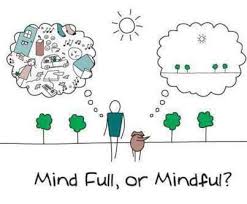Recently, Melissa and I had what many of us Christians refer to as a “disagreement”. For those of us that are in the mood to be more honest…Melissa and I had an argument. This one was short-lived, and there is a good reason for it not going on longer…which I will get to later in this post. But, for now, here’s the story…
We were away for the weekend. We had planned to have pancakes for breakfast before we left our home on Friday night. However, on Saturday morning, Melissa realized that she had forgotten to pack them. Concerned that I would be disappointed, she called me away from the others to tell me. When I realized she was so concerned about my reaction about something as unimportant as not having pancakes, I reacted with defensiveness. She, in turn, reacted to my defensiveness with her own defensiveness. I perceived our mannerisms as being animated enough that others would know we were arguing, so I angrily asked her to meet me in one of the rooms for a talk.
There was so much going on in those moments, that I will not cover it all here. However, here are some of the key underlying issues that were behind our reactions (emotional and behavioral):
- I am prone to using routine and plans to counter my insecurity. In other words, I seek to feel safe in having everything planned out and not accepting things failing to go according to plans.
- Melissa knows this all too well.
- Melissa wants me to feel okay and be pleased with what she does.
- Melissa is often tempted to plan so that I will not feel the insecurity that I have often felt and tried to avoid.
- Melissa’s plan failed.
- Melissa tried to contain the situation and prevent me from getting anxious or disappointed.
- I realized my insecurity (shame) was very visible not only to her, but possibly to others as well. And it was being seen in something as trivial as a plan to have pancakes for breakfast!
- I reacted defensively, trying to hide my shame.
- She acted defensively, trying to hide her shame as well.
Conflict is a certainty.
Many of you might be saying, “My my my, Neil. You have issues.” Yep, you are absolutely right! And my issues show up in the big AND small things. The above example is one of the small things. Melissa and I could have swept it under the rug, but it would just fester and show up elsewhere eventually. Sometimes, we go that route. It’s not recommended.
One thing is for sure, our issues show up in our relationships often in the form of outward conflict. There’s inner conflict as well, but for now I am going to stick with the outward kind. It occurs in every kind of relationship and situation we encounter in life. Conflict shows up in local churches, with coworkers, with family members, and in the kitchen while making supper (Melissa and I know this one from multiple personal experiences). Most of us do not care for conflict. Some of us would rather avoid it at all costs. However, conflict is something that is often viewed incorrectly. We often believe things about it that are simply not true.
We falsely believe that conflict should not happen.
We tend to feel bad when conflict occurs in our relationships with others, as if it is a sign that something is really bad wrong. The truth is this: conflict isn’t a bad thing in and of itself. Actually, in healthy relationships, it SHOULD happen. If it never happens, we are most likely not being honest with each other. True unity is something that occurs when conflict is welcome so that true resolutions can be sought and achieved.
We falsely believe that we should work hard to stop conflict from happening.
We are fighting to swim upstream when we try to prevent conflict. While we think we are seeking “peace”, it is actually false peace that we wind up with. The conflict is still there, but kept under wraps…growing and mutating into things like bitterness and resentment. We can dam it up all we want, but eventually the dam will break! When we focus only on preventing conflict, we fail to focus on honesty and openness that leads to healthier relationships.
Conflict does not destroy relationships.
The biggest misunderstanding about conflict may be that it is often viewed as the culprit behind failed relationships. While conflict is an indicator of underlying issues, it is not THE underlying issue in and of itself. It never is. The key to unlocking the hidden problems behind conflict, and preventing failed relationships, is this: humility. Lack of humility destroys relationships because without it, nothing gets resolved. With it, we are able to be honest about ourselves and own our part in the conflict. God works in and through humility in miraculous ways. In the example of Melissa and me above, humility might look like this for me:
- I actively trust God when He tells me I am not the messed up person I often think I am. The good news of Jesus tells me I am a new creation. My shame (insecurity) no longer defines me.
- This reality (the truth) gives me the courage to be real with Melissa, instead of angry and defensive. I no longer have to hide my shame.
- I openly admit to my part in the conflict, fully understanding that it does not define me. I acknowledge to myself and to her how my insecurity and attempts to cover it up lead to frustration, defensiveness, and hurt.
Humility does not happen without trust. The first good example of this many of us know about is when we came to trust Jesus for the first time. We knew we could not fix ourselves. What we did was humble ourselves by acknowledging our need for something outside of us. God’s love and grace washed over us and changed us. A huge part of faith is trusting that I am now who God says I am, even when I have not acted according to my new identity. This trust in Him gives the power to be humble. Self effort never does that! Another way to view humility is this: trusting others with who I really am. This allows us to be open and honest about our issues and mistakes. Not only does this process save relationships, it makes them significantly stronger.
-Neil
For more on humility and living out of your true identity…I encourage you to pick up the book “The Cure” by John Lynch, Bill Thrall, and Bruce McNicol.
If you would like, you can sign up to receive notifications of new blog posts and announcements here:












